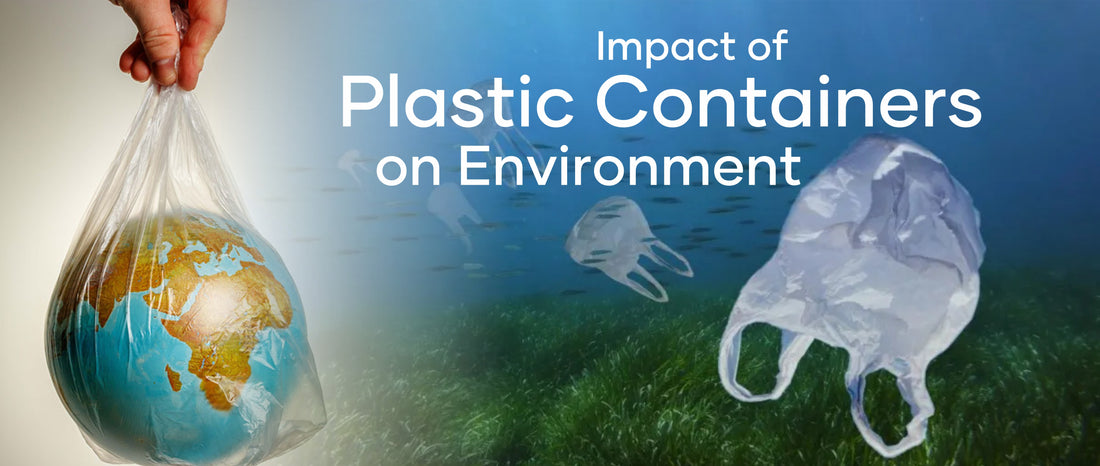
THE ENVIRONMENTAL IMPACT OF PLASTIC CONTAINERS AND CHEMICALS IN COSMETIC PRODUCTS
The beauty industry is the largest influential in the world, with millions people using Cosmetic Products on a daily basis. However, the production and use of these products come with environmental costs. Particularly concerning plastic packaging and the chemicals used in these formulations. In this blog, we will explore the impact of plastic containers and chemicals in cosmetics on the environment.
PLASTIC CONTAINERS
- Single-Use Plastics: Many Cosmetic Products are packaged in single-use plastic containers, such as bottles, jars, and tubes. These plastics often end up in landfills or the ocean, contributing to the global plastic pollution crisis.
- Microplastics: Some Cosmetic Products contain microplastics, tiny plastic particles that are harmful to marine life. The food chain when they wash down drains and into waterways.
- Non-Recyclable Packaging: Some cosmetic packaging is made from mixed materials. That are challenging to recycle, increasing the burden on waste management systems.
CHEMICALS IN COSMETIC PRODUCTS
- Toxic Ingredients: Some cosmetics contain chemicals that can be harmful to both the environment and human health. For example, parabens, phthalates, and formaldehyde-releasing preservatives have raised concerns.
- Animal Testing: The development and testing of Cosmetic Products often involve animal testing. Which not only raises ethical concerns but also has environmental impacts related to animal welfare.
- Wastewater Pollution: The use and disposal of cosmetics can lead to the release of chemicals into wastewater systems, which can then find their way into rivers and oceans, affecting aquatic life.
SUSTAINABLE ALTERNATIVES
- Reducing Plastic Waste: Brands can adopt eco-friendly packaging solutions such as glass, aluminum, or biodegradable materials. Refillable containers are another sustainable option.
- Cleaner Formulations: Companies can invest in cleaner, more natural formulations that use fewer harmful chemicals, prioritizing organic and cruelty-free ingredients.
- Consumer Education: Educating consumers about the environmental impact of their cosmetic choices can encourage them to make more eco-conscious decisions.
REGULATIONS AND CERTIFICATIONS
- Stricter Regulations: Governments and regulatory bodies can implement stricter regulations on the use of harmful chemicals in cosmetics and promote the use of sustainable packaging.
- Certifications: Look for Cosmetic Products with certifications like “Cruelty-Free,” “Vegan,” or “Organic” to ensure that they meet certain environmental and ethical standards.
The cosmetics industry plays a significant role in shaping consumer choices and impacting the environment. As consumers, we can make more informed decisions by choosing products with sustainable packaging and cleaner formulations. Additionally, supporting brands that prioritize environmental responsibility and advocating for stricter regulations can collectively contribute to a more sustainable future for the beauty industry. By reducing the environmental footprint of cosmetics, we can take a step towards a healthier planet.
24cOrbelle is dedicated to creating cosmetics products with a strong commitment to environmental consciousness and sustainability. Your approach aligns with the growing demand for eco-friendly and natural products in the beauty industry. Here are some points you can highlight to showcase your brand’s commitment to the environment:
BENIFITS:-
Chemical-Free Formulations: Your products are free from harmful chemicals, which not only benefits the environment but also promotes healthier skincare.
- Plastic-Free Packaging: Your products avoid the use of single-use plastics, reducing plastic waste and its impact on the planet.
- Fragrance-Free: Your products are fragrance-free, as synthetic fragrances can contain chemicals that are harmful to both people and the environment.
- Preservative-Free: Your products are formulated without preservatives, which can have adverse effects on the environment when they enter wastewater systems.
- Water Conservation: Your water-free approach, as water conservation is a crucial aspect of environmental responsibility.
- Natural Ingredients: Your products uses natural, sustainable, and ethically sourced ingredients, which aligns with a love for nature and promotes biodiversity conservation.
- Sustainable Practices: We follow sustainable production and sourcing practices you employ, such as using renewable energy, reducing waste, or supporting fair trade.
- Certifications: We are certifications like “Certified Organics”, Vegan / Cruelty Free”
- Transparent Production: We follow production process which are aimed to use less Electricity, Less Water, Less Transportation, We avoid unnecessary travels and Products are shipped in recyclable packaging.
- Community Involvement: We intend to develop a community for like minded people and as a gesture we intend to plant trees for each product we sell.
